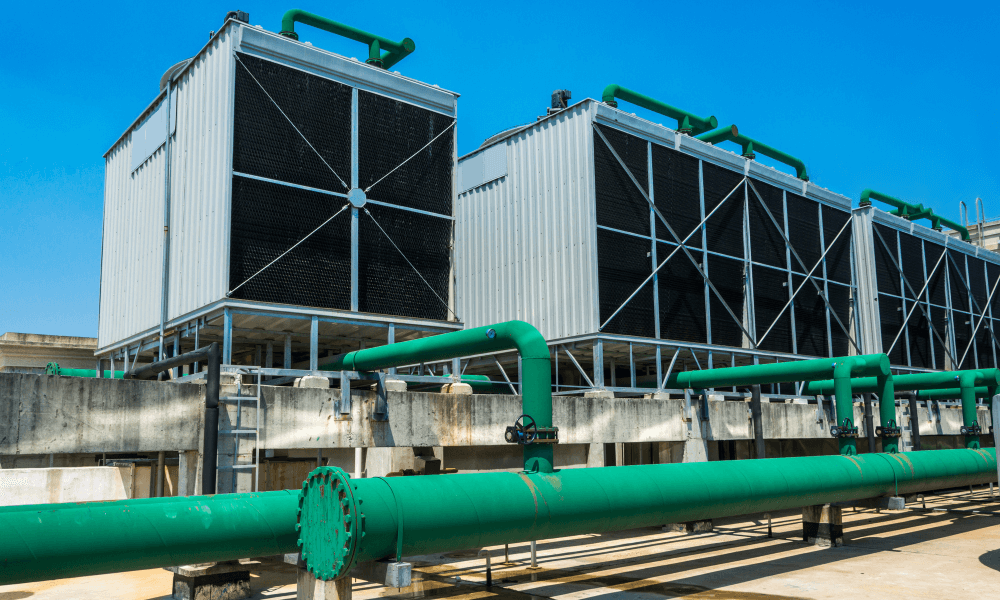
Understanding the Importance of Cooling Energy Management
In an increasingly energy-conscious world, managing energy consumption has become a critical aspect of sustainability efforts. One area that often goes unnoticed is cooling energy management. Cooling systems are a fundamental part of our daily lives, from air conditioning in buildings to refrigeration in industries and homes. However, the energy required to power these cooling systems can be significant, making it essential to understand and optimize cooling energy management. By doing so, we can achieve substantial energy savings, reduce greenhouse gas emissions, and create more sustainable environments.
1. Energy Consumption and Climate Impact:
Cooling systems consume a substantial amount of energy. In fact, air conditioning alone accounts for a significant portion of energy consumption in many buildings and households. As the demand for cooling increases with rising global temperatures and population growth, so does the energy required to meet this demand. This increased energy consumption puts a strain on power grids and can lead to higher greenhouse gas emissions, exacerbating the climate crisis.
2. Financial Implications:
High cooling energy consumption also has financial implications for individuals, businesses, and governments. Energy costs are a major expense for many organizations, and inefficient cooling systems can lead to skyrocketing utility bills. By implementing effective cooling energy management strategies, businesses and households can reduce their energy consumption and save on operational costs. Additionally, governments and utilities can invest in energy efficiency programs and incentives to promote sustainable cooling practices.
3. Environmental Impact:
The environmental impact of cooling energy consumption extends beyond greenhouse gas emissions. The production and use of cooling systems often involve the use of refrigerants that contribute to ozone depletion and climate change. The disposal of old and inefficient cooling equipment can also lead to environmental pollution. By managing cooling energy effectively, we can minimize the use of harmful refrigerants, promote responsible disposal practices, and reduce the overall environmental footprint of cooling systems.
4. Optimal System Performance:
Efficient cooling energy management involves optimizing the performance of cooling systems. Regular maintenance, proper insulation, and smart control systems can significantly improve energy efficiency. Additionally, advanced technologies such as variable-speed drives, energy-efficient compressors, and heat recovery systems can further enhance cooling system performance. By investing in these technologies and implementing best practices, we can achieve better cooling performance while minimizing energy consumption.
5. Integrated Building Design:
Cooling energy management is closely linked to building design. By considering passive cooling techniques during the design phase, such as natural ventilation, shading, and thermal insulation, we can reduce the reliance on mechanical cooling systems. Designing buildings with energy efficiency in mind and incorporating renewable energy sources like solar power can further contribute to sustainable cooling practices. Integrated building design approaches that optimize heating, ventilation, and cooling systems holistically can lead to substantial energy savings and environmental benefits.
6. Behavioral Changes:
While technology and design play crucial roles in cooling energy management, individual behavior also has a significant impact. Simple actions like setting temperature limits, using natural ventilation when possible, and turning off cooling systems when not needed can contribute to energy savings. Education and awareness campaigns can help promote energy-efficient practices and encourage responsible cooling habits among individuals and communities.
7. Government Policies and Regulations:
Government policies and regulations play a vital role in promoting sustainable cooling energy management. Energy efficiency standards, building codes, and labeling schemes can incentivize the use of energy-efficient cooling systems and practices. Tax incentives and subsidies can encourage businesses and households to invest in energy-saving technologies. Collaborative efforts between governments, utilities, and industries are essential to develop and enforce effective policies that drive the adoption of sustainable cooling practices.
In conclusion, recognizing and prioritizing the importance of cooling energy management is vital for building a sustainable future. By optimizing cooling systems, we can achieve significant energy savings, reduce operational costs, and mitigate environmental impact. Embracing energy-efficient technologies, integrated building designs, and individual behavioral changes are key to achieving sustainable cooling practices. Collaboration between governments, industries, and individuals is crucial in implementing effective policies and driving the adoption of responsible cooling practices. Let us work together to create a greener world through efficient cooling energy management.
Image by evening_tao on Freepik